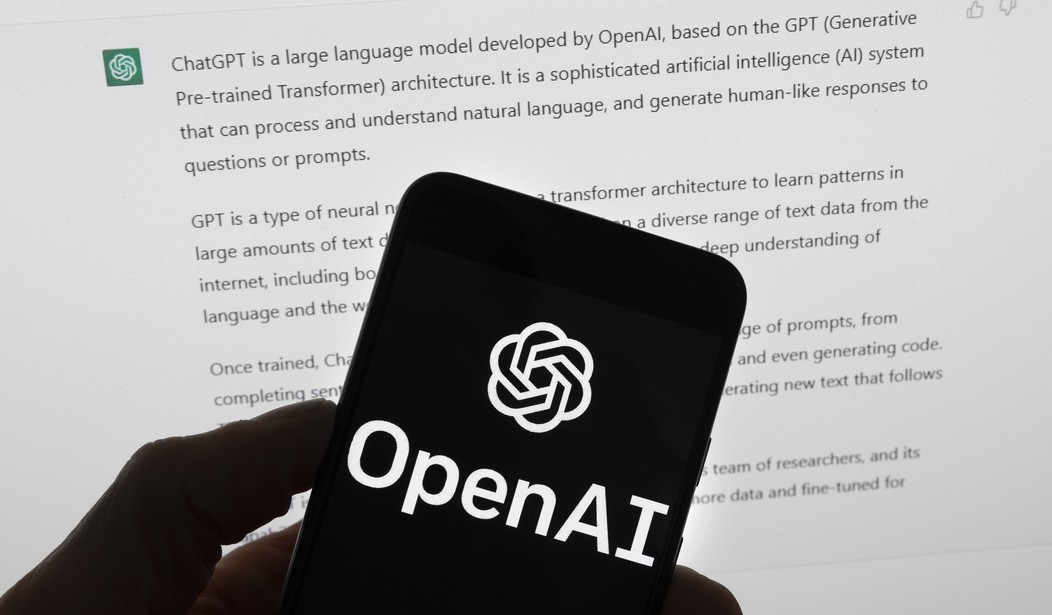So Trump made a big announcement about a new AI initiative to inject up to $600 billion — yes, that says billion, with a B — into an initiative aimed at, as the White House says with its characteristically modest phrasing:
REMOVING BARRIERS TO AMERICAN AI INNOVATION: Today, President Donald J. Trump signed an Executive Order eliminating harmful Biden Administration AI policies and enhancing America’s global AI dominance.
So what's this all about? Obviously this is a way of covertly funding the Stargate SG group in Cheyenne Mountain. Basically, it has two parts.
First of all, it reverses the Biden administration's executive order that imposed federal control over AI development. This is what drove Marc Andreesen to take the red pill and endorse Trump:
What the Biden people told Andreesen was much more onerous than their public announcements. According to Andreesen:
He walked away believing they endorsed having the government control AI to the point of being market makers, allowing only a couple of companies who cooperated with the government to thrive. He felt they discouraged his investments in AI. “They actually said flat out to us, ‘don’t do AI startups like, don’t fund AI startups,” he said.
Among the AI startups Andreesen has already supported is Elon Musk's x.Ai, among others. Of course, only a cynic would suggest that the Biden reaction to Musk daring to endorse Trump had anything to do with the decision.
In any case, Trump indicated that he thinks the tech guys should be given free rein.
Andreessen said ... Trump told him, “I don’t know much about tech, but I don’t need to, because you guys know a lot about it. You guys should go build tech companies. The American tech companies should win.”
So what is the Stargate Initiative?
Primarily, it's an initiative to build new infrastructure for AI.
Fundamentally, what AI really does is construct a mathematical model of its training data, and then uses that model to build answers to prompts. This requires prodigious amounts of computation, both to build the models and update them and to process the prompts that deliver content to users. xAI is building out a data center in Memphis, Tennessee, with a data center that started out with 100,000 GPUs in a massive supercomputer named, unnervingly, Colossus, with plans to expand Colossus to 1 million GPUs.
Aside: A GPU — or Graphics Processing Unit — is a specialized computer processor that was originally targeted at making graphics rendering faster, which is why the name. But what a GPU does is do matrix multiplication very very quickly, and that has uses far beyond making Minecraft scream. In particular, the mathematics that underlies modern AI is primarily doing very big matrix multiplications.
Colossus is already using a collection of 14 natural gas mobile generators, because the Tennessee Valley Authority couldn't support the power demands, which will be 150 megawatts (MW) and are expected to grow to more than 200 MW, even with newer and more power-efficient GPUs. Google estimates that an AI-powered search consumes as much as 10 times the power needed for its current search approach.
Current power grids, not to mention generation capacity, can't keep up. So one primary job of the Stargate initiative will be building out the infrastructure for massive data centers and the power to support them.
Mark Zuckerberg has thrown in with the Stargate initiative. In a post on Facebook, he wrote
Not everyone is on board. Elon Musk, in particular, questions the project. In "Musk Bashes Trump’s New Stargate AI Initiative With OpenAI And Oracle As ‘Fake’—Here’s Why," Forbes says:
It took less than two days for Elon Musk to voice displeasure with President Donald Trump, as the world’s richest man Musk questioned perhaps Trump’s biggest business announcement yet, a $500 billion deal bolstering Musk’s artificial intelligence company.
(Don't you love the way they cast this? "It took less than two days....")
So what's up with Musk? One thing is that a major player in Stargate is Sam Altman, who is leading the OpenAI project, for which Musk provided initial funding, and which Altman is now trying to make a for-profit company, when it was originally a nonprofit. Musk feels swindled, and Altman sees his stake in the new for-profit OpenAI netting him billions of dollars. In fact, Musk is suing OpenAI and Altman for breach of contract over this.
So what to make of this?
First of all, at least right now, what Trump is promising is a more relaxed regulatory environment — it's all private money, coming from a lot of deep-pocketed players.
I'm a little bit of an AI skeptic, at least compared to the biggest AI fans. On the other hand, I find Grok and Claude very useful; I wrote recently about how I use Grok as a "second brain," and there are at least a couple of links in this article where I used Grok to find and summarize information. But the demands of AI are driving the Stargate initiative to take up some major challenges that affect us all. AI will force us to expand power generation and the power grid. Google, Microsoft, and Meta — Facebook's parent company — are all trying to bring nuclear power online to support their data center power demands.
I think, when it comes down to it, it's private investment that will support the power grid and research that will lead to not just better AI, but better computers. It seems like a good idea.
And Skynet says "Hi."










